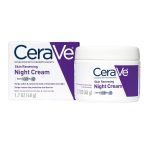
CeraVe Skin Renewing Night Cream, Review night cream Buying Guide – Oemiu
CeraVe Skin Renewing Night Cream: A Deep Dive and Your Ultimate Night Cream Guide
The quest for radiant, youthful skin is a journey many of us embark on. Among the myriad of products promising to turn back the clock, night creams hold a special place. These overnight treatments work while you sleep, leveraging the skin’s natural regenerative processes to deliver powerful ingredients. One product that consistently appears in “best of” lists and skincare conversations is the CeraVe Skin Renewing Night Cream. But does it live up to the hype? Is it truly the best affordable night cream for sensitive skin or just another fleeting trend? This comprehensive guide will delve into the details of CeraVe’s offering, comparing it to the wider world of night creams, and equipping you with the knowledge to make the right choice for your unique skin.
Unpacking CeraVe Skin Renewing Night Cream: Ingredients, Benefits, and User Experience
CeraVe has built a strong reputation for creating effective, dermatologist-recommended skincare products that are accessible and affordable. The Skin Renewing Night Cream is a prime example. At its core, this cream aims to address common signs of aging, such as fine lines, wrinkles, and uneven skin tone, while providing essential hydration and supporting the skin’s natural barrier. The magic lies in its formulation, which combines several key ingredients known for their beneficial properties.
The star of the show is undoubtedly encapsulated retinol. Retinol, a derivative of Vitamin A, is a powerhouse ingredient in the anti-aging world. It works by promoting cell turnover, stimulating collagen production, and reducing the appearance of wrinkles and fine lines. CeraVe’s use of encapsulated retinol is particularly noteworthy. Encapsulation helps to deliver the retinol gradually, minimizing potential irritation, a common concern with retinol products. This is especially beneficial for those with sensitive skin who might otherwise find retinol too harsh.
Beyond retinol, the formula includes a blend of ceramides (1, 3, and 6-II), which are essential lipids that help to restore and maintain the skin’s natural barrier. A healthy skin barrier is crucial for preventing moisture loss, protecting against environmental aggressors, and keeping the skin looking plump and healthy. Niacinamide, also known as Vitamin B3, is another key ingredient. Niacinamide has anti-inflammatory properties, helps to even out skin tone, reduce redness, and minimize the appearance of pores. Hyaluronic acid is also included, adding a surge of hydration, drawing moisture into the skin and helping to keep it supple.
What truly sets this cream apart, however, isn’t just the ingredient list but also the overall formulation. CeraVe prioritizes gentle, non-irritating formulas. The cream is fragrance-free, non-comedogenic (meaning it won’t clog pores), and allergy-tested, making it a good option for a wide range of skin types, including sensitive skin. Many users report a noticeable improvement in their skin’s texture and hydration levels after consistent use. They also report diminished fine lines and a brighter, more even skin tone. However, as with any retinol product, it’s important to start slowly, using it a few times a week and gradually increasing frequency as your skin tolerates it. Some users may experience mild dryness or peeling initially, which is a normal reaction as the skin adjusts to the retinol.
Real-World User Experiences and Potential Drawbacks
Reading ingredient lists and understanding scientific claims is one thing, but hearing about real-world experiences is invaluable. Countless online reviews and testimonials highlight the positive impact of CeraVe Skin Renewing Night Cream. Users often praise its affordability and accessibility, making it a great entry point into the world of retinol skincare. Many report seeing a visible reduction in fine lines and wrinkles, particularly around the eyes and mouth. The cream’s hydrating properties are also frequently mentioned, with users noting that their skin feels softer, smoother, and more supple after use. For many, it’s become a staple in their nighttime skincare routine, providing consistent and reliable results.
However, no product is perfect, and CeraVe Skin Renewing Night Cream is no exception. While the encapsulated retinol is designed to minimize irritation, some users, especially those with very sensitive skin, may still experience redness, dryness, or peeling. It’s important to emphasize the “start low and go slow” approach when introducing any retinol product into your routine. It’s also crucial to use a broad-spectrum sunscreen during the day, as retinol can make the skin more sensitive to the sun.
Another potential drawback is the cream’s texture. While many find it lightweight and easily absorbed, others may find it slightly greasy, particularly if they have oily skin. However, this is a common trade-off with many night creams, which are often formulated to be richer and more emollient than daytime moisturizers. A small amount of the cream can also go a long way.
Ultimately, the effectiveness of CeraVe Skin Renewing Night Cream, or any skincare product, depends on individual skin type and concerns. What works wonders for one person may not be the best choice for another. Reading reviews and considering your own skin’s needs and sensitivities is essential before making a purchase.
Beyond CeraVe: Understanding the Night Cream Landscape
While CeraVe’s Skin Renewing Night Cream is a popular and well-regarded option, it’s just one piece of the vast night cream puzzle. To truly find the best night cream for your needs, it’s important to understand the different types of night creams available, the key ingredients they contain, and how they address various skin concerns. The world of best night cream for aging skin is full of options, from affordable drugstore finds to high-end luxury treatments.
Night creams can generally be categorized based on their primary focus: hydration, anti-aging, brightening, or acne treatment. Hydrating night creams are designed to replenish moisture lost during the day and create a protective barrier to prevent further moisture loss overnight. These creams typically contain ingredients like hyaluronic acid, glycerin, ceramides, and shea butter. Anti-aging night creams, like the CeraVe Skin Renewing Night Cream, focus on reducing the appearance of wrinkles, fine lines, and age spots. They often contain retinol, peptides, antioxidants, and growth factors. Brightening night creams aim to even out skin tone, fade dark spots, and improve overall radiance. Common ingredients include vitamin C, niacinamide, alpha-hydroxy acids (AHAs), and kojic acid. Night creams for acne treatment typically contain ingredients like salicylic acid, benzoyl peroxide, or tea tree oil to unclog pores, reduce inflammation, and prevent breakouts.
The price range of night creams is also incredibly diverse. You can find effective hydrating night creams for under $20, while high-end anti-aging treatments can cost hundreds of dollars. The price often reflects the concentration and quality of the ingredients, as well as the research and development that went into the formulation. However, a high price tag doesn’t always guarantee superior results. It’s important to focus on the ingredients and how they align with your specific skin concerns, rather than simply choosing the most expensive option.
Furthermore, the texture and consistency of night creams can vary significantly. Some are lightweight and gel-like, while others are rich and creamy. The best texture for you will depend on your skin type and personal preference. Oily skin types may prefer a lighter, non-comedogenic formula, while dry skin types may benefit from a richer, more emollient cream. Sensitive skin types should look for fragrance-free and hypoallergenic options to minimize the risk of irritation.
Navigating the night cream landscape can feel overwhelming, but by understanding the different types of creams, key ingredients, and your own skin’s needs, you can narrow down your options and find the perfect fit for your nighttime skincare routine. Remember to be patient and consistent, as it can take several weeks or even months to see noticeable results. And don’t hesitate to consult with a dermatologist or skincare professional for personalized recommendations.
Choosing the Right Night Cream: A Comprehensive Buying Guide
Finding the right night cream can feel like searching for a needle in a haystack. With so many products on the market, each promising miraculous results, it’s easy to feel overwhelmed. This comprehensive buying guide will break down the key factors to consider when choosing a night cream, helping you make an informed decision that aligns with your specific skin needs and goals. We’ll explore skin type considerations, ingredient deep dives, texture preferences, and budget management. When discussing night cream for dry skin, it’s crucial to consider ingredients that focus on intense hydration and moisture retention.
Understanding Your Skin Type and Specific Concerns
The foundation of any effective skincare routine is understanding your skin type. The most common skin types are oily, dry, combination, sensitive, and normal. Each skin type has unique characteristics and requires different types of ingredients and formulations. Oily skin is characterized by excess sebum production, which can lead to clogged pores and breakouts. Dry skin lacks moisture and can feel tight, flaky, and itchy. Combination skin has both oily and dry areas, typically with an oily T-zone (forehead, nose, and chin) and dry cheeks. Sensitive skin is easily irritated by certain ingredients and can react with redness, itching, or burning. Normal skin is generally well-balanced and doesn’t experience extreme oiliness or dryness.
In addition to your skin type, it’s important to identify your specific skin concerns. Are you primarily concerned with reducing wrinkles and fine lines? Evening out skin tone and fading dark spots? Hydrating dry skin? Treating acne breakouts? Once you understand your skin type and concerns, you can narrow down your search to night creams that are specifically formulated to address those issues.
For example, if you have oily skin and are concerned about acne, you should look for a night cream that is oil-free, non-comedogenic, and contains ingredients like salicylic acid or benzoyl peroxide. If you have dry skin and are concerned about wrinkles, you should look for a night cream that is rich in hydrating ingredients like hyaluronic acid, ceramides, and shea butter, as well as anti-aging ingredients like retinol or peptides. If you have sensitive skin, you should look for a night cream that is fragrance-free, hypoallergenic, and contains soothing ingredients like aloe vera or chamomile.
Knowing your skin and the challenges it faces will steer you towards products designed to tackle those particular concerns, resulting in a much better outcome overall. This personalized approach will allow you to customize your skincare routine so that you can achieve maximum results.
Ingredient Spotlight: Decoding the Labels
Once you’ve identified your skin type and concerns, it’s time to delve into the ingredient lists of different night creams. Understanding the purpose and benefits of various ingredients is crucial for making an informed decision. Here’s a breakdown of some of the most common and effective ingredients found in night creams:
- Retinol: A derivative of Vitamin A that promotes cell turnover, stimulates collagen production, and reduces the appearance of wrinkles and fine lines.
- Hyaluronic acid: A powerful humectant that draws moisture into the skin, keeping it hydrated and plump.
- Ceramides: Lipids that help to restore and maintain the skin’s natural barrier, preventing moisture loss and protecting against environmental aggressors.
- Niacinamide: Also known as Vitamin B3, niacinamide has anti-inflammatory properties, helps to even out skin tone, reduce redness, and minimize the appearance of pores.
- Peptides: Chains of amino acids that help to stimulate collagen production and improve skin firmness.
- Antioxidants: Protect the skin from free radical damage caused by environmental factors like pollution and UV radiation. Common antioxidants include Vitamin C, Vitamin E, and green tea extract.
- Alpha-hydroxy acids (AHAs): Exfoliating acids that help to remove dead skin cells, revealing brighter and smoother skin. Common AHAs include glycolic acid and lactic acid.
- Salicylic acid: A beta-hydroxy acid (BHA) that helps to unclog pores and reduce inflammation, making it effective for treating acne breakouts.
When reviewing ingredient lists, pay attention to the order in which the ingredients are listed. Ingredients are typically listed in descending order of concentration, meaning that the ingredients listed first are present in the highest amounts. Also, be aware of potential irritants, such as fragrance, alcohol, and certain preservatives. If you have sensitive skin, it’s best to avoid these ingredients.
Understanding these ingredients, their function and their concentration within the formula will enable you to pick and choose the products that will work best for you. A night cream for oily skin will, for example, contain ingredients to combat excess sebum and unclog pores.
Texture and Application: Finding Your Comfort Zone
The texture and consistency of a night cream can significantly impact your overall experience. Some people prefer lightweight, gel-like creams that absorb quickly, while others prefer richer, more emollient creams that provide intense hydration. The best texture for you will depend on your skin type, personal preference, and the climate you live in.
Oily skin types typically benefit from lighter, non-comedogenic formulas that won’t clog pores. Gel-based creams, serums, and lotions are good options for oily skin. Dry skin types typically need richer, more emollient creams that provide intense hydration. Creamy lotions, balms, and oil-based serums are good options for dry skin. Combination skin types may need to experiment to find the right balance. A lightweight lotion or gel-cream may be a good option for combination skin. Sensitive skin types should look for creams that are fragrance-free, hypoallergenic, and contain soothing ingredients. The texture should be smooth and non-irritating.
Beyond texture, the application process is also important. Most night creams should be applied to clean, dry skin after cleansing and toning. A small amount of cream should be applied evenly to the face and neck, avoiding the eye area. Gently massage the cream into the skin until it is fully absorbed. Some night creams may have a slightly thicker texture and require a bit more time to absorb.
Experimenting with different textures and application methods will help you discover what works best for your skin. Don’t be afraid to try different products until you find one that feels comfortable and effective. The ultimate goal is to find a night cream that you enjoy using and that provides the results you’re looking for.
Budget Considerations: Balancing Cost and Quality
The price of night creams can range from affordable drugstore options to high-end luxury treatments. While it’s tempting to assume that the most expensive creams are always the best, this is not necessarily the case. The price of a night cream often reflects the concentration and quality of the ingredients, as well as the research and development that went into the formulation. However, you can find effective night creams at a variety of price points.
When considering your budget, it’s important to prioritize ingredients over price. Look for creams that contain effective ingredients that address your specific skin concerns. Don’t be swayed by fancy packaging or celebrity endorsements. Read reviews and compare ingredient lists to find the best value for your money.
It’s also important to remember that skincare is an investment in your long-term health and appearance. While you don’t need to spend a fortune on night cream, it’s worth investing in a product that you enjoy using and that provides noticeable results. Consider starting with a more affordable option and gradually upgrading to a more expensive cream as your budget allows.
| Feature | CeraVe Skin Renewing Night Cream | Typical High-End Night Cream | Typical Budget Night Cream |
|---|---|---|---|
| Key Ingredients | Encapsulated Retinol, Ceramides, Niacinamide, Hyaluronic Acid | Potent Retinoids, Peptides, Growth Factors, Rare Botanicals | Hyaluronic Acid, Glycerin, Basic Emollients |
| Price Range | $15 – $25 | $80 – $300+ | $5 – $15 |
| Targeted Concerns | Fine lines, Wrinkles, Hydration, Skin Barrier | Deep Wrinkles, Loss of Firmness, Advanced Aging | Basic Hydration, Dryness |
| Skin Type Suitability | Most skin types, including sensitive (with gradual introduction) | Varies depending on formulation, often not suitable for very sensitive skin | Generally suitable for normal to dry skin |
Ultimately, the best night cream for you is the one that you can afford, that you enjoy using, and that provides the results you’re looking for. Don’t be afraid to experiment and try different products until you find the perfect fit. The quest for the best drugstore night cream, or the perfect high-end splurge, is a personal one.
Frequently Asked Questions (FAQ)
What are the benefits of using a night cream?
Night creams are specially formulated to work while you sleep, leveraging the skin’s natural regenerative processes. During sleep, your skin repairs itself from the day’s damage caused by environmental factors like UV radiation, pollution, and stress. Night creams typically contain ingredients that support this repair process, such as retinol, peptides, and antioxidants. These ingredients help to stimulate collagen production, reduce the appearance of wrinkles and fine lines, even out skin tone, and protect against free radical damage.
Additionally, night creams are often richer and more emollient than daytime moisturizers, providing intense hydration and preventing moisture loss overnight. This is particularly beneficial for dry skin types, as it helps to replenish moisture and keep the skin supple. Using a night cream regularly can lead to significant improvements in skin texture, tone, and overall radiance. It’s a vital step in any comprehensive skincare routine.
How do I choose the right night cream for my skin type?
Choosing the right night cream starts with understanding your skin type. If you have oily skin, look for oil-free, non-comedogenic formulas that won’t clog pores. Ingredients like salicylic acid can help to control oil production and prevent breakouts. For dry skin, opt for richer, more emollient creams that contain hydrating ingredients like hyaluronic acid, ceramides, and shea butter. Combination skin may require a lighter lotion or gel-cream that balances hydration without causing breakouts. Sensitive skin needs fragrance-free, hypoallergenic formulas with soothing ingredients like aloe vera or chamomile.
Consider your specific skin concerns as well. If you’re concerned about wrinkles, look for creams with retinol or peptides. For uneven skin tone, niacinamide or vitamin C can be beneficial. Always read ingredient lists carefully and avoid potential irritants like fragrance or alcohol. Patch-testing a new cream on a small area of skin before applying it to your entire face is a good practice, especially for sensitive skin types.
Is retinol safe to use in a night cream?
Retinol is a powerful anti-aging ingredient that can be safely used in a night cream when used correctly. Retinol promotes cell turnover and stimulates collagen production, reducing the appearance of wrinkles and fine lines. However, retinol can also cause irritation, redness, dryness, and peeling, especially when first introduced into your skincare routine. To minimize these side effects, start slowly by using a retinol night cream only a few times a week and gradually increase the frequency as your skin tolerates it.
It’s also important to use a broad-spectrum sunscreen during the day, as retinol can make your skin more sensitive to the sun. Look for encapsulated retinol, as it is formulated for slow release which can also help to minimize irritation. If you experience significant irritation, stop using the product and consult with a dermatologist. Pregnant or breastfeeding women should avoid using retinol products.
Can I use a night cream during the day?
While it’s generally not recommended to use a night cream during the day, there are some exceptions. Night creams are typically formulated to be richer and more emollient than daytime moisturizers, which can make them feel heavy or greasy on the skin during the day. They may also contain ingredients, like retinol, that can increase sun sensitivity. However, if you have very dry skin, you may find that a night cream provides the extra hydration you need during the day, especially in cold or dry climates.
If you choose to use a night cream during the day, be sure to apply a broad-spectrum sunscreen with an SPF of 30 or higher to protect your skin from the sun. You may also want to choose a lighter night cream formula or apply a smaller amount than you would at night. Ultimately, it’s best to use a daytime moisturizer specifically formulated for daytime use, as these products typically contain ingredients that protect the skin from environmental aggressors like UV radiation and pollution.
How long does it take to see results from using a night cream?
The time it takes to see results from using a night cream can vary depending on the individual, the specific product, and the skin concern being addressed. Some people may notice improvements in skin hydration and texture within a few days of using a night cream. However, it typically takes several weeks or even months to see significant improvements in wrinkles, fine lines, and uneven skin tone.
Consistency is key when it comes to skincare. Using a night cream regularly, as part of a comprehensive skincare routine, will yield the best results. Be patient and don’t expect to see overnight miracles. Take photos of your skin before you start using a new night cream and then again after a few weeks or months to track your progress. Remember that skincare is a long-term investment in your skin’s health and appearance.
Are expensive night creams always better than affordable ones?
The price of a night cream does not always reflect its effectiveness. While more expensive night creams may contain higher concentrations of active ingredients or more sophisticated formulations, you can find effective and affordable night creams as well. The key is to focus on the ingredients and how they align with your specific skin concerns.
Read reviews, compare ingredient lists, and consider your own skin’s needs and sensitivities before making a purchase. Don’t be swayed by fancy packaging or celebrity endorsements. There are many excellent drugstore night creams that can provide significant benefits for your skin. Ultimately, the best night cream for you is the one that you can afford, that you enjoy using, and that provides the results you’re looking for.
Is it necessary to use a separate eye cream with a night cream?
Whether or not you need to use a separate eye cream with a night cream depends on your individual needs and preferences. The skin around the eyes is thinner and more delicate than the skin on the rest of the face, making it more prone to wrinkles, fine lines, and dark circles. Eye creams are specifically formulated to address these concerns and are often gentler and more hydrating than traditional facial moisturizers.
If you have specific concerns about the skin around your eyes, such as wrinkles, dark circles, or puffiness, using a separate eye cream can be beneficial. Look for eye creams that contain ingredients like retinol, peptides, vitamin C, or caffeine. However, if you don’t have any specific concerns about the skin around your eyes, you may be able to use your night cream around the eye area. Just be sure to avoid getting the cream directly into your eyes. If you’re unsure, consult with a dermatologist for personalized recommendations.
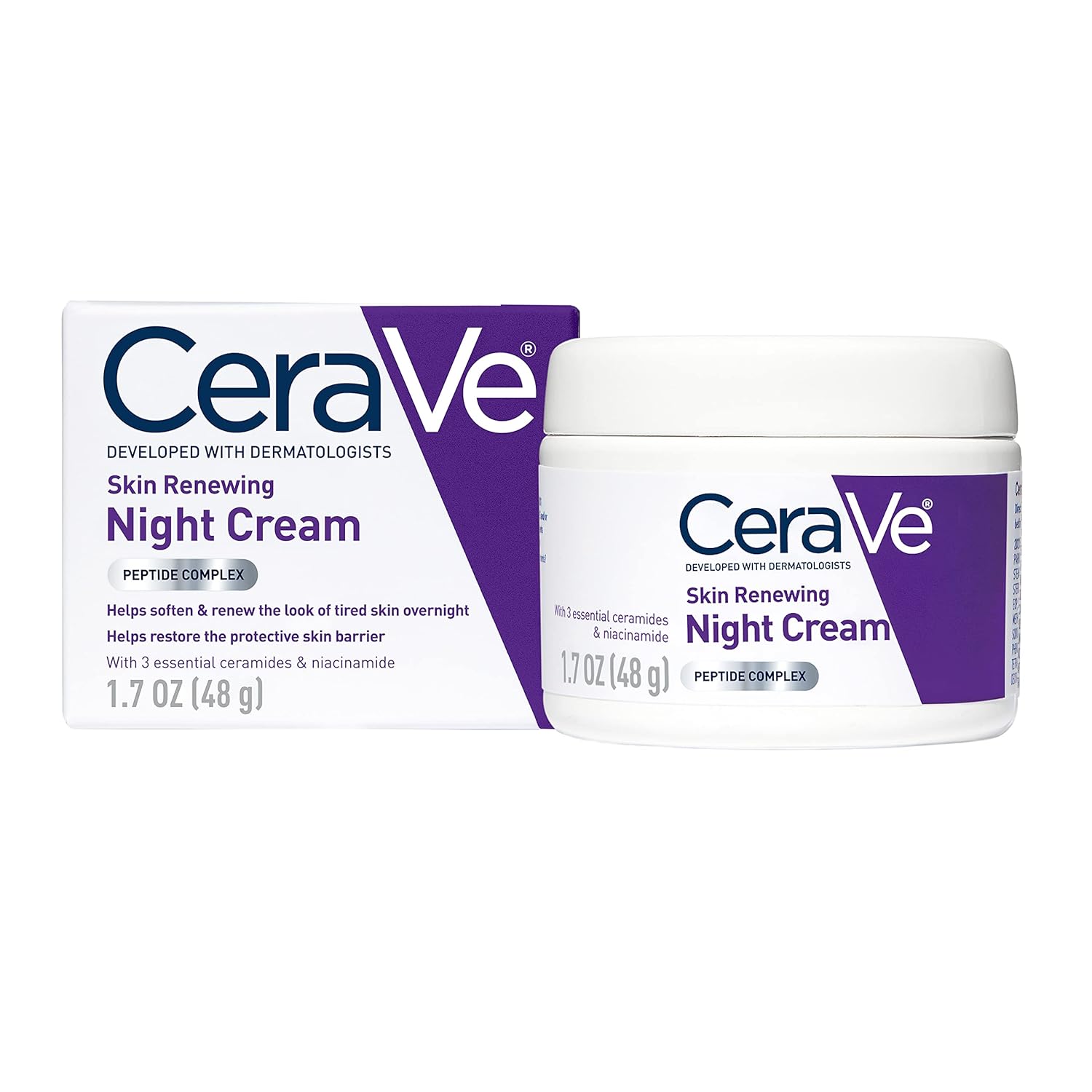
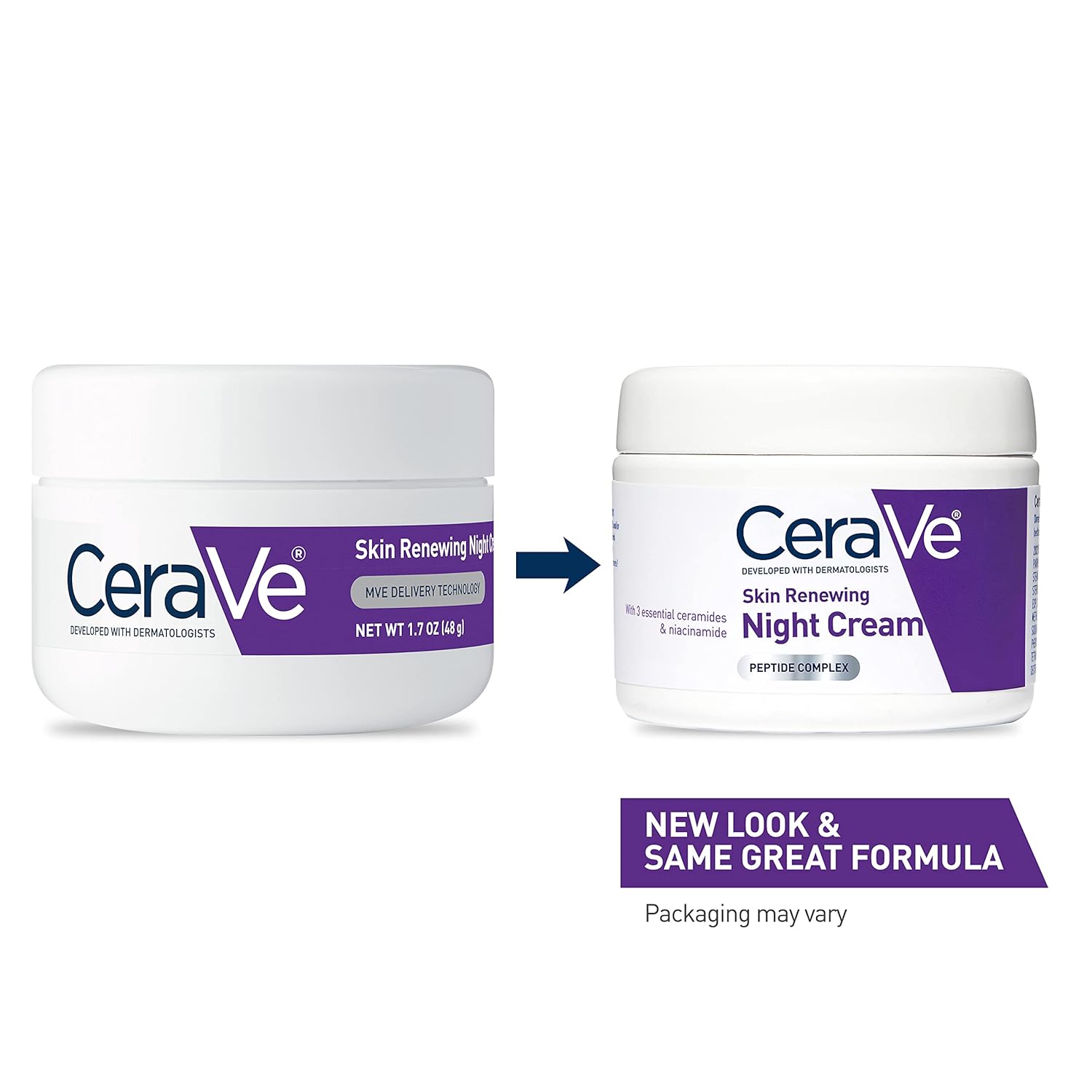
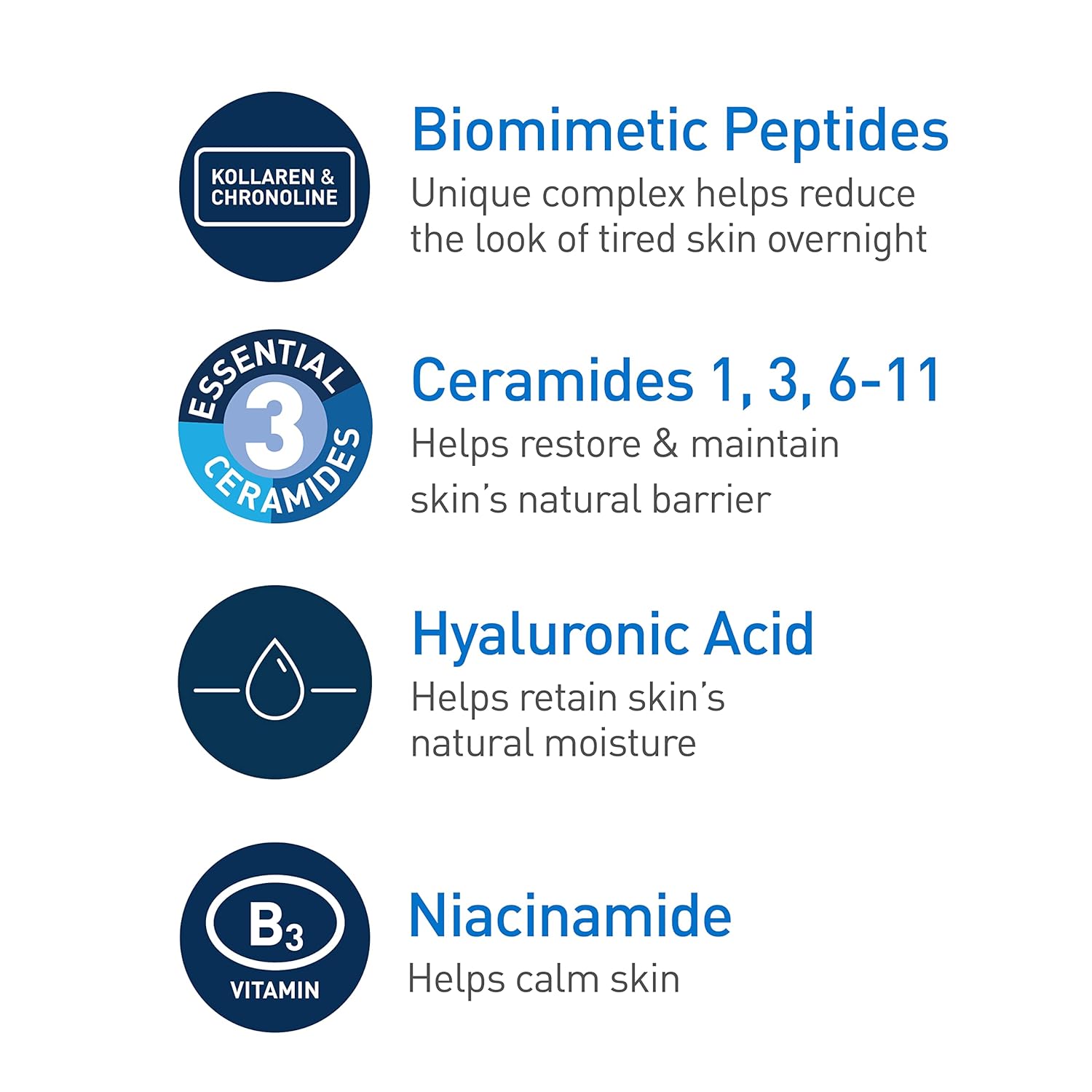
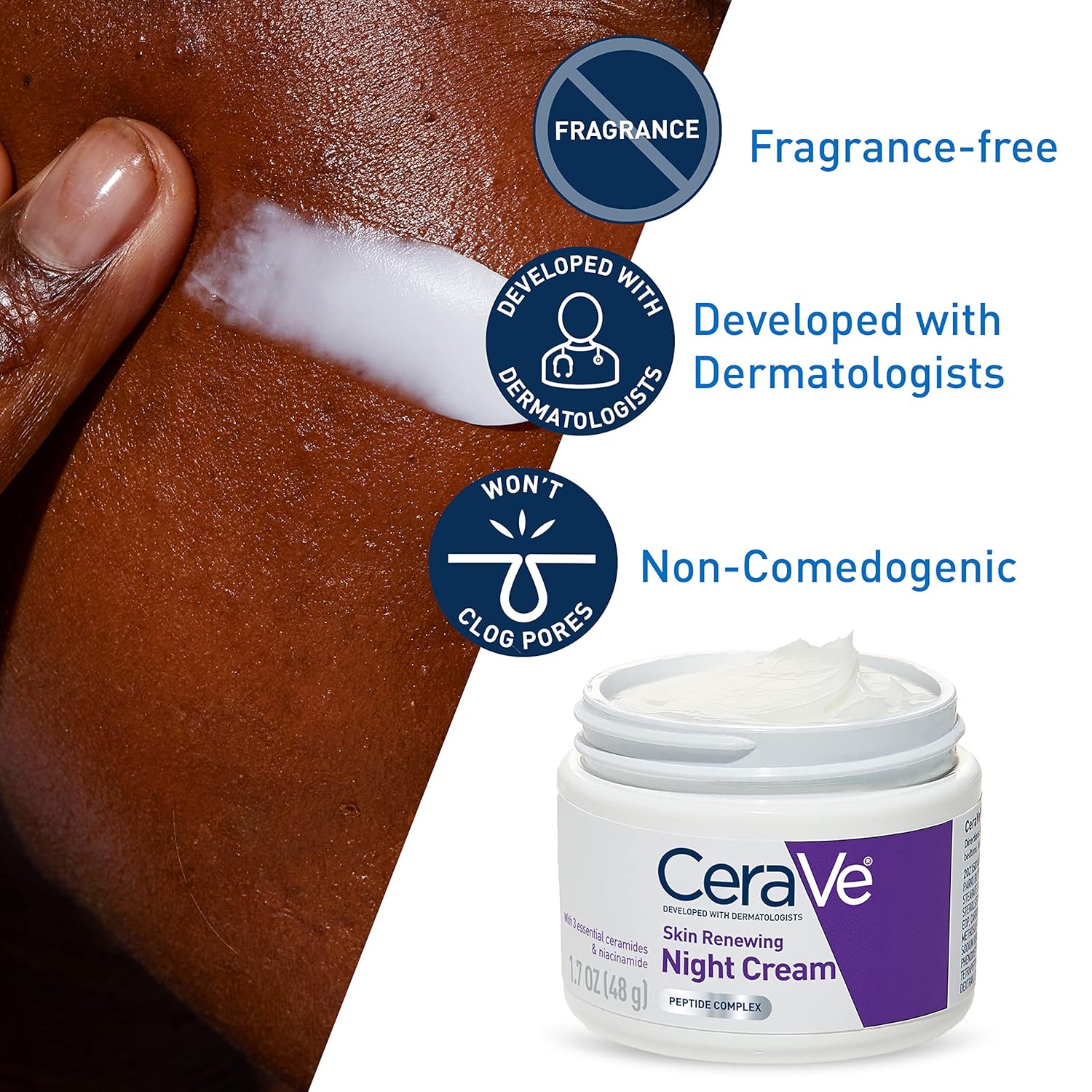
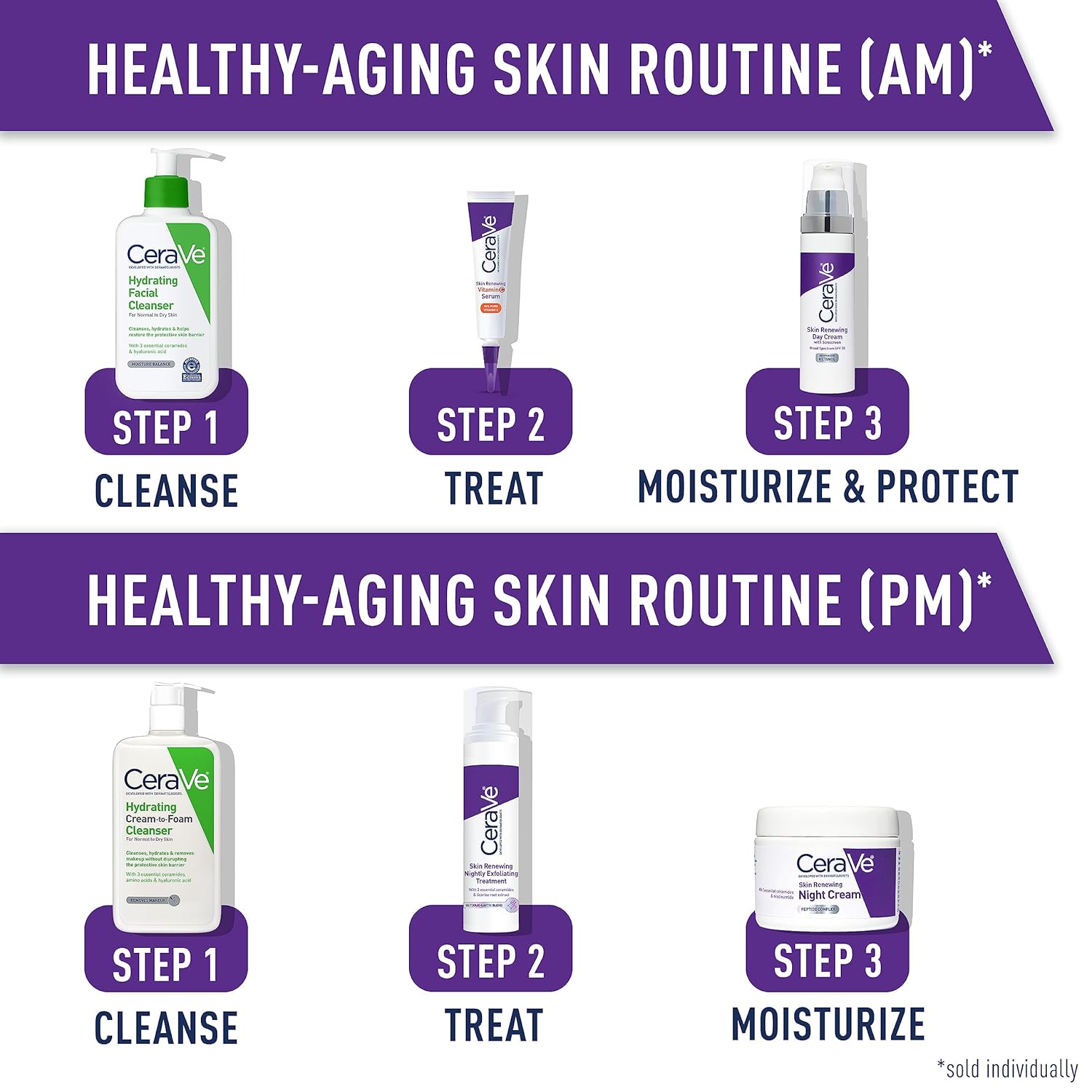
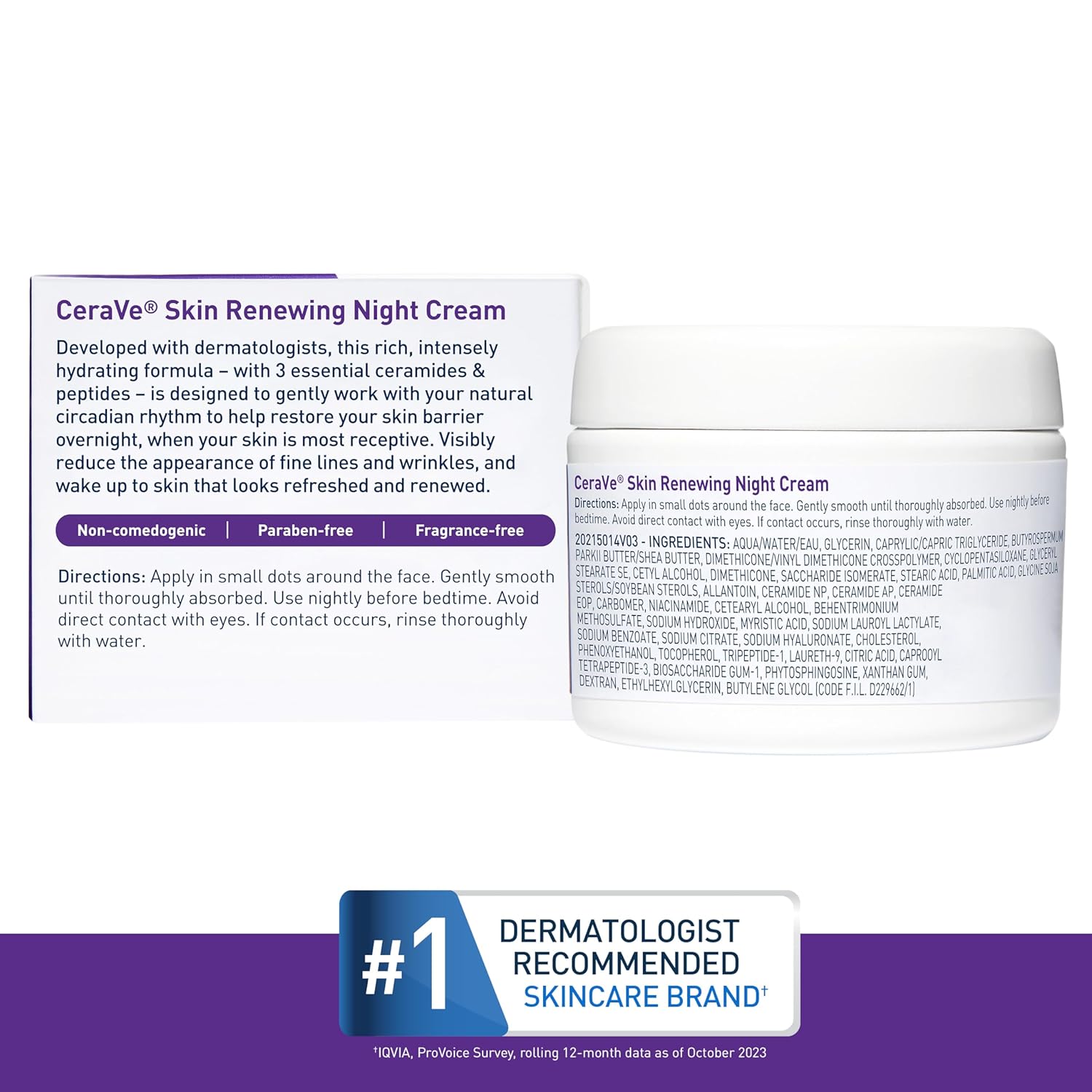

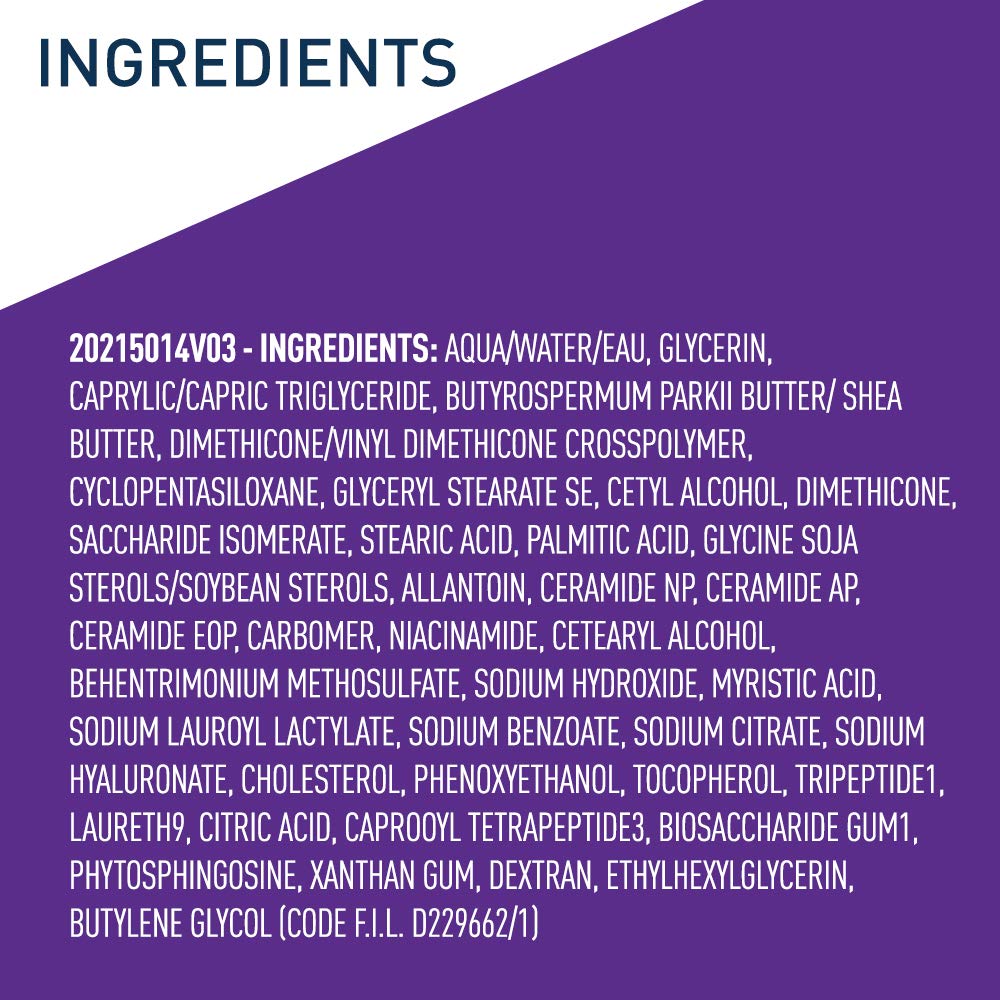
Price: $21.99 - $15.90
(as of Sep 04, 2025 13:24:41 UTC – Details)




